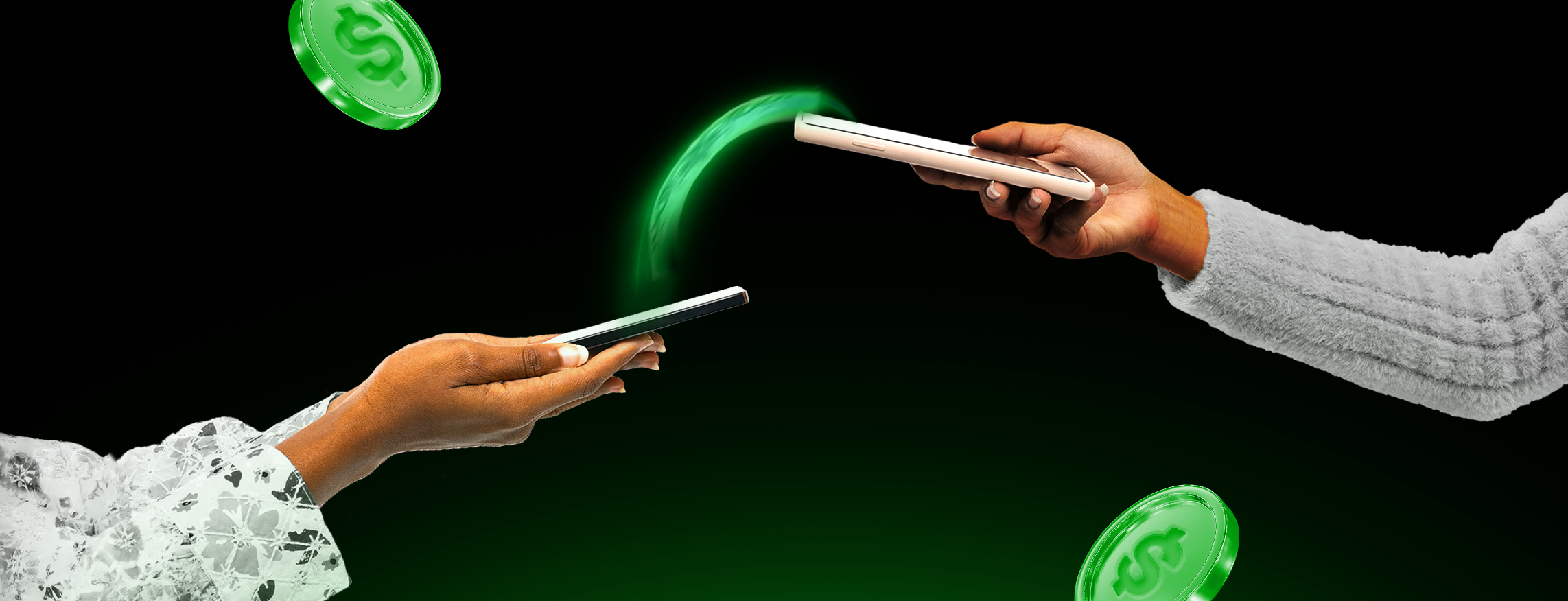
.svg)


If you're a Nigerian living in the United States, you're part of a vibrant diaspora community that plays a key role in Nigeria's economy. In 2024, Nigerians abroad sent home $20.93 billion in official remittances, making Nigeria one of the largest recipients of diaspora funds globally. Nigeria accounted for 37% of total remittances in Africa in 2024, underlining just how significant these transfers are for families and communities back home.
With this level of remittance, money transfer services are quite important. The right choice can save you hundreds of dollars annually while ensuring your loved ones receive their funds quickly and securely. Let's explore your options so you can make the most informed decision for your unique situation.
Why traditional banks fall short
Your first instinct might be to use your American bank for international transfers. After all, it's convenient and familiar. However, using a bank is the most expensive way of sending money abroad.
Traditional banks typically add significant markups to exchange rates, often between 3% to 6%, and charge additional transfer fees on top. When you're sending money regularly, these costs add up quickly. What looks like a "no-fee" transfer might actually cost you substantially more through unfavourable exchange rates.
Digital money transfer options
The good news is that technology has transformed how we send money internationally. Digital money transfer operators (MTOs) have emerged as faster, cheaper, and more transparent alternatives to traditional banking.
Several established platforms serve the US-Nigeria corridor effectively:
Wise
Wise has built a reputation for transparency and competitive pricing. Wise uses the mid-market exchange rate and shows all fees upfront, with good number of transfers arriving in under 20 seconds. For Nigerians who value speed and predictability, Wise offers a reliable option.
Remitly
Remitly provides flexible delivery options and has become one of the authorized operators handling transfers to Nigeria from the US. They offer both express and economy options, allowing you to balance cost with speed based on your needs.
WorldRemit
WorldRemit is another authorized service that can send money to Nigerian bank accounts securely. They provide multiple delivery methods, giving your recipients flexibility in how they access funds.
Sendwave
Sendwave focuses on simplicity and affordability, with rapid, affordable transfers from debit cards to mobile wallets and bank accounts. Their straightforward pricing model appeals to those who want no surprises.
Meet Pesa: your connection home
Among these options, Pesa stands out as a service designed with diaspora communities in mind.
What makes Pesa particularly attractive for Nigerians in the US:
- Competitive rates: Transparent pricing that respects your hard-earned money.
- Multiple delivery options: Bank deposits or mobile wallets, whatever works best for your recipient.
- User-friendly platform: Whether you're sending from your phone during a lunch break or from your laptop at home, the process is straightforward and the experience is smooth.
- Reliable delivery: Track your transfer every step of the way.
- Purpose-built for diaspora: Pesa understands the emotional and practical importance of staying connected to home.
For frequent senders, digital nomads, and international students especially, having a trusted, cost-effective service like Pesa at your disposal ensures you're never more than a few clicks away from supporting your loved ones.
Your delivery options
Bank deposits
Direct bank deposits remain the most popular method. Major Nigerian banks like Zenith Bank, Access Bank, First Bank, and Union Bank have extensive branch networks, making this option accessible across the country. Many services now offer same-day or next-day bank deposits, depending on the provider and time of transfer.
Cash pickup
For recipients without bank accounts, and over 40 million people in Nigeria lack access to bank accounts, cash pickup provides immediate access to funds. Services like Western Union and MoneyGram maintain extensive agent networks across Nigerian cities and rural areas.
Mobile wallets
Then there is mobile money, which is growing rapidly in Nigeria. Sending to mobile wallets offers convenience for tech-savvy recipients who can then use the funds for various purposes, from paying bills to making purchases, without visiting a physical location.
What to consider when choosing a service
Transfer fees and exchange rates
Don't just look at the transfer fee; the total cost includes both the fee and the exchange rate markup. A service advertising "no fees" might offer a less favourable exchange rate than one with a small fee but better rates. Always compare how much your recipient will actually receive.
Transfer speed
Need money to arrive urgently? Some services offer instant or same-day transfers, though they typically cost more. For planned expenses, economy options arriving within 2-3 business days often provide better value.
Reliability and security
Stick with regulated, licensed operators. Since 2020, only a small number of operators are authorized to handle transfers to Nigeria, and using licensed services protects both you and your recipient.
Convenience
Consider how you'll fund the transfer (bank account, debit card, credit card) and how often you send money. Services with mobile apps make recurring transfers more convenient.
Customer support
When something goes wrong, and occasionally, it does, responsive customer support makes all the difference. Look for services with 24/7 support and multiple contact channels.
Practical strategies to maximize your transfers
- Compare before every transfer: Exchange rates and fees fluctuate. What was cheapest last month might not be the best deal today. Quick comparison tools from services like Monito help you find optimal rates.
- Send larger, less frequent amounts: Fixed fees matter less when you're sending larger sums. If your recipient can manage receiving money monthly instead of weekly, you might save significantly on fees.
- Time your transfers: Exchange rates vary throughout the day. If you're not in a rush, watching rates for a day or two might net you a better deal.
- Use bank transfers to fund: Funding via bank transfer typically costs less than credit or debit cards, though it may take slightly longer to process.
- Consider payment plans for regular transfers: Some services offer subscription models or reduced fees for frequent senders. It is worth exploring if you send money monthly.
Security best practices
Protecting yourself and your recipient matters:
- Only use licensed, regulated money transfer operators like Pesa.
- Keep all transaction records and reference numbers.
- Verify recipient information carefully before sending.
- Enable two-factor authentication on your transfer accounts.
- Be wary of services requesting unusual personal information.
- Never share your login credentials.
Conclusion
The remittance market continues to evolve rapidly. Digital innovations, improved regulations, and growing competition among providers all benefit consumers. The Central Bank of Nigeria's RT200 FX Programme has resulted in a 15% increase in official remittance transfers in 2024, and this trend shows no signs of slowing.
For Nigerians in the US, this means more choices, better rates, and faster transfers than ever before. Whether you're supporting family members, investing in property back home, contributing to community projects, or managing business operations, having multiple reliable transfer options empowers you to move money on your terms.
Ready to start sending money smarter? Sign up with Pesa and experience seamless, secure transfers to support your loved ones in Nigeria.
.webp)
Related articles
See all














